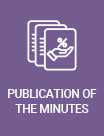Banco de la República reduces the benchmark interest rate by 25 bp to 4.25%
The Board of Directors of Banco de la República, in its meeting today, decided to reduce the benchmark interest rate by 25 bp, placing it at 4.25%. For this decision, the Board mainly took into account the following aspects:
- In March, yearly inflation and the average of core inflation indicators once again fell more than expected, standing at 3.14% and 3.64%, respectively. This time, the slowdown of the CPI excluding food and of other core inflation indicators explained the slower pace of increase of consumer prices.
- The reversal of transitory shocks that took place in 2017, the appreciation of the peso, and a broad food supply, explain the fall in inflation recorded in the quarter.
- Inflation expectations have reduced. Those by analysts to December 2018 and 2019 stand, on average, at 3.37% and 3.16%, respectively. Those derived from public debt bonds to 2, 3, and 5 years, stand between 3.0% and 3.3%.
- External demand continues to recover, driven by developed economies and by the major emerging economies. Oil prices increased again, surpassing the averages registered in the last two years. The increase in the country's terms of trade and a better dynamics expected from external demand would continue favoring the recovery of the country’s external income.
- The economic activity indicators available so far this year suggest that the economy would have continued with a low growth, albeit higher than in 2017. With these results, the technical staff of the Central Bank maintained its growth estimate for 2018 at 2.7%. Recovery in external demand, better terms of trade, the effect of the reductions in interest rates, and investment in civil works would explain the acceleration of GDP. However, the under-utilization of the productive capacity would be expanded in 2018. The preliminary estimate of the technical staff for GDP growth in 2019 is 3.7%.
- The forecasts by the Central Bank's technical staff suggest a slight closing of the current account deficit as a share of GDP.
Based on this information, the Board considered the following factors for its decision:
- Weakness of the economic activity and uncertainty over its pace of recovery. On the one hand, the excess capacity is expected to expand in 2018. On the other, should the price of oil remain at current levels for a prolonged period, investment in the sector would increase and national income would improve. Uncertainty on the persistence of these factors is high.
- The lower inflation observed versus the inflation forecast and the reduction in inflation expectations, which could suggest a faster convergence of inflation to its target. Nevertheless, upside risks persist. One of them is an increase in food prices affecting expectations and delaying the convergence of inflation to 3.0%. Similarly, a stronger-than-expected depreciation of domestic currency that could be passed-through to domestic prices. Again, uncertainty on these events is high.
In this environment, upon assessing the state of the economy and the risk balance, the Board deemed appropriate to reduce the benchmark interest rate by 25 bp, placing it at 4.25%
The Board will continue to carefully monitor the behavior of inflation and the forecasts for economic activity and inflation in the country, as well as the international context. Finally, the Board reiterates that the monetary policy will depend on the availability of new information.
The decision to reduce the benchmark interest rate by 25 bp was approved unanimously by the Board of Directors.
The Board decided that, starting today, the minutes of its meetings shall be published 5 business days after the meeting.
Bogotá,














.png)

































